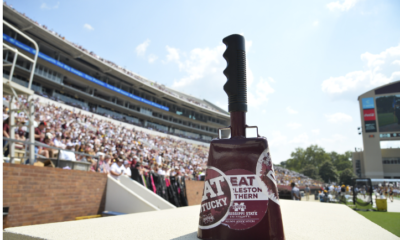Herm Edwards, the former head coach of the Arizona State Sun Devils, has taken legal action against Arizona State University (ASU), the NCAA, and the College Football Hall of Fame over the vacating of victories that significantly altered his career record. This lawsuit has stirred considerable attention and debate within the college football community.
Herm Edwards, a well-known figure in football, had a distinguished career as a player and coach in the NFL before transitioning to college football. He took over as head coach of the Arizona State Sun Devils in 2018. Under his leadership, the Sun Devils experienced a resurgence, with several noteworthy victories and improved overall performance. However, controversies and challenges soon emerged, culminating in the decision to vacate several of the team’s victories.
The Vacated Victories
The vacating of victories often stems from NCAA investigations that uncover violations of regulations. In the case of ASU, the NCAA found infractions related to recruiting and improper benefits to student-athletes. These findings led to the harsh penalty of vacating wins, which significantly impacted the team’s record and Edwards’ coaching legacy. The vacated victories stripped Edwards of key milestones and achievements, effectively erasing notable successes from the official record.
The Lawsuit
Edwards’ lawsuit against ASU, the NCAA, and the College Football Hall of Fame argues that the vacating of victories was unjust and detrimental to his career. Edwards claims that the penalties were excessively harsh and that he was not directly responsible for the infractions. He asserts that the investigation and subsequent penalties failed to adequately consider his lack of involvement in the violations and that the decision to vacate victories unfairly tarnished his legacy.
Legal Arguments
- Due Process Violation: Edwards contends that the NCAA’s investigation and the process leading to the vacating of victories violated his right to due process. He argues that he was not given a fair opportunity to defend himself or present evidence to counter the allegations.
- Lack of Direct Involvement: Edwards maintains that he was not directly involved in the infractions. He argues that the actions of a few individuals within the program should not result in such severe penalties for the entire team and coaching staff. Edwards asserts that the NCAA’s decision to vacate victories was a disproportionate response to the violations.
- Impact on Career and Legacy: The vacating of victories significantly altered Edwards’ career record and legacy. He argues that the penalties not only affected his professional reputation but also had personal and financial repercussions. Edwards claims that the NCAA’s actions have caused irreparable harm to his standing in the football community and hindered his prospects for future opportunities in coaching and other roles.
Implications for College Football
Edwards’ lawsuit has broader implications for the world of college football. It raises important questions about the fairness and consistency of NCAA penalties, the responsibility of head coaches for the actions of their staff and players, and the impact of vacated victories on a coach’s legacy.
- NCAA Enforcement Practices: The lawsuit challenges the NCAA’s enforcement practices and the criteria used to determine penalties. It highlights concerns about the lack of transparency and consistency in how violations are investigated and punished. The outcome of Edwards’ case could prompt a reevaluation of NCAA procedures and lead to reforms aimed at ensuring greater fairness and accountability.
- Responsibility of Head Coaches: The case underscores the complex issue of head coach responsibility. While head coaches are expected to oversee their programs and ensure compliance with NCAA regulations, the extent to which they should be held accountable for the actions of subordinates and players is a contentious topic. Edwards’ argument that he should not be penalized for infractions he was not directly involved in could influence future interpretations of coach responsibility.
- Legacy and Recognition: The vacating of victories affects not only the official record but also a coach’s legacy and recognition. The lawsuit raises questions about how vacated victories should be treated in the context of career achievements and hall of fame considerations. Edwards’ challenge to the College Football Hall of Fame highlights the tension between official records and the broader recognition of a coach’s contributions to the sport.
Herm Edwards’ lawsuit against ASU, the NCAA, and the College Football Hall of Fame represents a significant challenge to the current practices of penalizing college football programs for infractions. The case brings to the forefront critical issues regarding due process, coach responsibility, and the impact of vacated victories on a coach’s legacy. As the legal proceedings unfold, the outcome could have far-reaching implications for the enforcement of NCAA regulations and the treatment of coaches in similar situations. Edwards’ pursuit of justice reflects a broader struggle within college athletics to balance accountability with fairness and to ensure that the legacies of coaches and players are accurately and justly recognized.

 NFL2 months ago
NFL2 months ago
 NCAA1 month ago
NCAA1 month ago
 NFL2 months ago
NFL2 months ago
 NFL2 months ago
NFL2 months ago
 NHL2 weeks ago
NHL2 weeks ago
 NFL2 months ago
NFL2 months ago
 NBA2 months ago
NBA2 months ago
 NHL2 months ago
NHL2 months ago












